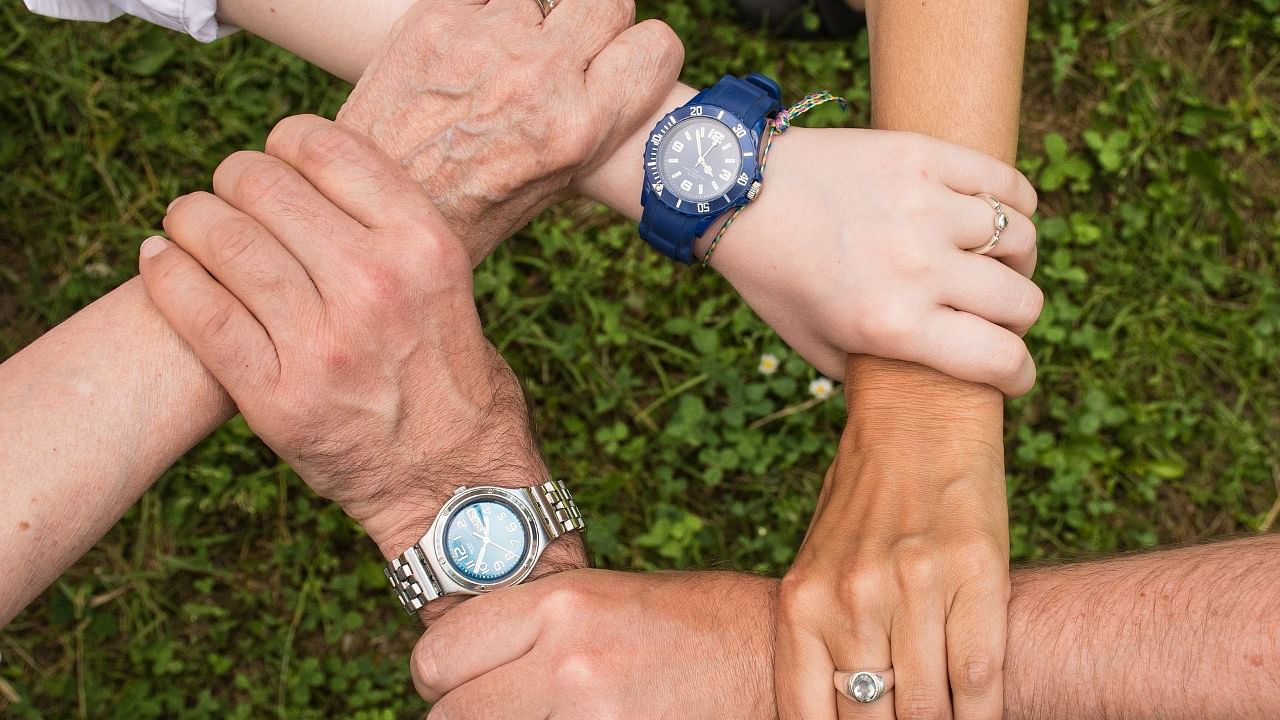
A friend of mine asked me this question: How do I make peace with my parents becoming old and infirm?
For a start, I do not think of my parents as old and infirm. I just cannot. In my mind’s eye they are frozen in time, as they once were, firm and healthy and commanding and “always there”. When I dream, and I often dream of my childhood, they are as I remember them as a child, because the thing with children, and that’s a good and a bad thing both, is that they do not see their parents as human beings but as parents.
And people age, parents don’t.
Which is why every time I see them in real life, after a while, I am shocked for a fraction of a second, as the algorithms in my brain jitter, trying to reconcile my mental model of them with reality. And as I become older, and they too, the inevitability of our time with each other decreasing hits me.
From time to time, often just as I am awake, in that twilight zone between wakefulness and sleep, when the people in the dream, young and healthy, fade away into the knowledge of their present, and the inevitability seeps through, of that journey home I will have to make one day on the news. Yes, I too struggle, to make peace with my parents becoming old and infirm and then that which I know will follow.
The thing that I tell myself, when I have these thoughts is that there are only two ways this can play out - either my parents deal with my mortality or I deal with theirs. Of course, as a parent myself, I know that the former would break my parents, which leaves only one option left, and that is how it should be, in the best of scenarios.
After telling myself that, I try to not fight as much with my parents as I used to, not that I am always particularly successful (after all it’s difficult to get rid of old habits), because I want the time we have left to be the best as it can be.
When we are younger, time is always infinite, and there is always a next time. Now as each day passes by, you know there might not be, and so you have to compensate for it.
The last thing I do to cope is to tell my parents that I love them. I know it may sound trite, but if counting the likes from strangers makes you feel good, why don’t you think that your words will have at least that effect on your own parents? For words are important, and they don’t have to sound particularly profound or poetic, and your parents saw you shitting in your diapers. So with them, you don’t have to be sophisticated, original or clever.
Which leads me to finish with something my daughter says to me. A few years ago, I used to pick her and hold her up and then she would flap around like a bird. I can still pick her up, but I cannot hold her up like that for that long, above my head, floating in the air, and I tell her “Bubu is getting old”, to which tells me “But when Bubu gets older, he will get stronger and more powerful.”
Now, most likely it’s just a thing she says because it’s fun to say. She is, after all, nine years old.
But I think, and this may certainly be me over-interpreting, that she is trying to tell me something else, something deeper, that the power that makes me hold her up is love, which will increase with moments and memories of togetherness; that a parent’s true strength is not in their arms and back and knees, but in their hearts, a magical place that is beyond the reach of age, infirmity and death.
(The writer is a US-based cybersecurity expert. He is also a novelist and a blogger/podcaster.)